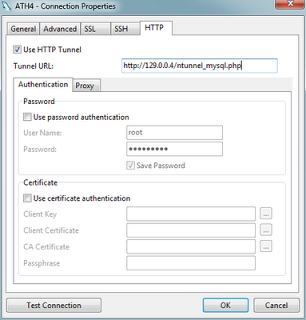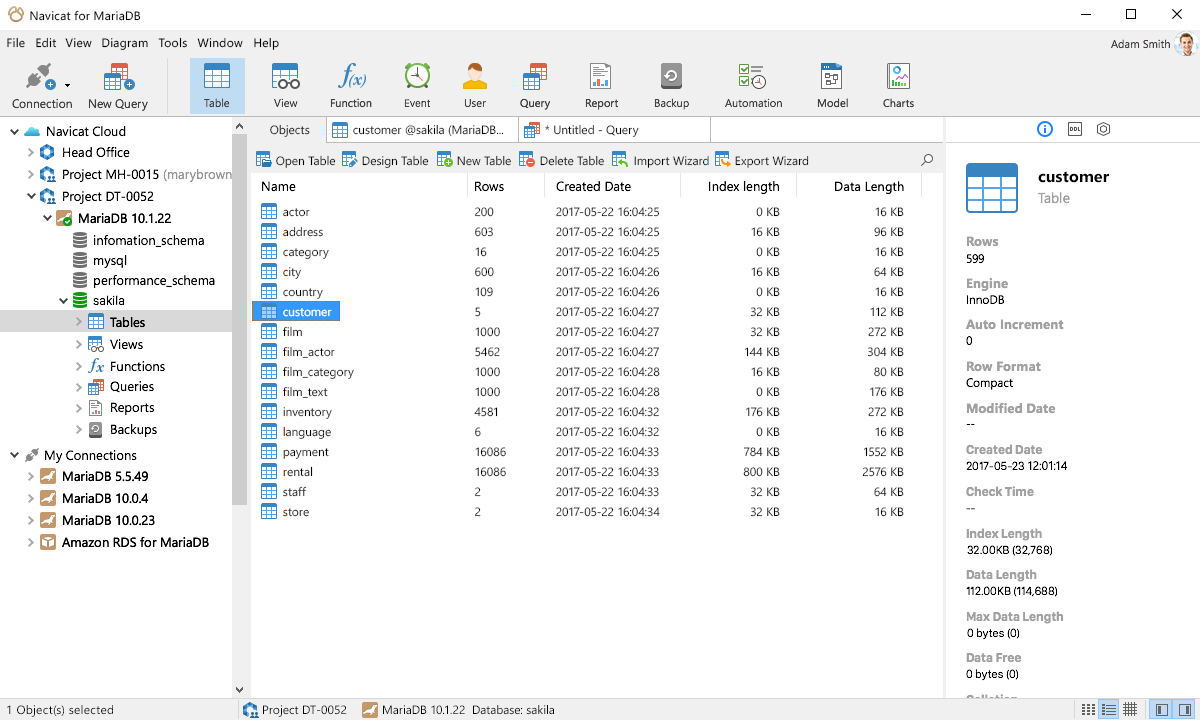

SET PASSWORD FOR = PASSWORD('yourpassword') You can create a new user with all the same rights as the root user and that will not be restricted. Navicat Premium For Windows v16.0.11 Best GUI DB Admin Tool for MySQL, PostgreSQL, MongoDB, MariaDB, SQL Server, Oracle & SQLite client Software.
Navicat for mysql ubuntu install#
Follow the tutorial, and replace: sudo apt-get install quanta. In the same repositories you can find mysql gui tools): The tutorial is in this blog article. I wasn't able to find anywhere documenting this but experimentation proved it was the case. I solved this problem with the following method (I used to install quanta+ 3.5 in ubuntu 12.04.

Only root (the linux user, or a user with sudo privileges) can log in to mysql as root (the database user). Run everything as super user: sudo mysql -u root -p This indicates that your user doesn't have permission to connect to the database itself, before it even gets to logging in not the database user, your actual linux user.

Mysqladmin: connect to server at 'localhost' failed I know this is 3 years old but I just had this problem as well and wanted to post my answer in case anyone else does the same search I did.
Navicat for mysql ubuntu how to#
Once you're done, you should be configured and a few google searches will teach you how to create a database The daemon will be stopped and you'll be prompted for a new password. If you want to change the MySQL root password, run this: sudo dpkg-reconfigure mysql-server-5.5 For example, to configure MySQL to listen for connections from network hosts, change the bind-address directive to the server's IP address: bind-address = 192.168.0.5Īfter this, restart the MySQL daemon, sudo service mysql restart This includes the Log File, Port Number, Etc. MySQL 3.21 or later, Drizzle, OurDelta, and Percona Server MariaDB 5. Let's go to /etc/mysql/my.cnf to configure the basic settings. If this is not running correctly, run this restart command, sudo service mysql restart When you run this, you should see this reply, tcp 0 0 localhost:mysql *:* LISTEN 2556/mysqld Looks like you're missing a few steps in between, so let's look over this:įirst, as you mentioned, let's do an installation, sudo apt-get install mysql-serverĪfter you installed it, let's try a little test, sudo netstat -tap | grep mysql This is strange because since 12.04 (guessing you're running Kubuntu 12.04), MySQL has been default.


 0 kommentar(er)
0 kommentar(er)
